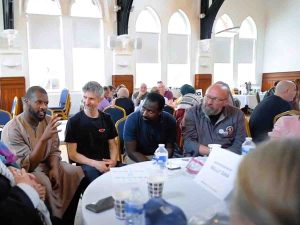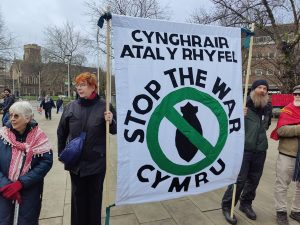On June 12, 2024, the United Nations Independent International Commission of Inquiry on the Occupied Palestinian Territory (OPT) released a pivotal report detailing allegations of war crimes committed by Israel. The UN inquiry, established to investigate violations of international law and human rights in the OPT, has brought to light a series of grave accusations against Israel – including the crime of “extermination”. Yet the silence from Western leaders is deafening.
Background to the UN Inquiry
The Commission was established by the UN Human Rights Council in response to escalating violence and long-standing allegations of human rights abuses in the OPT, including the West Bank, East Jerusalem, and Gaza Strip. The inquiry aimed to provide an independent and impartial examination of the actions of all parties involved in the conflict, with a particular focus on potential violations of international humanitarian law and human rights law.
The UN inquiry into Israel and Hamas is based on a comprehensive investigation, including on-the-ground observations, interviews with witnesses and victims, analysis of satellite imagery, and review of medical and forensic reports. The Commission also consulted with legal experts and scholars to ensure that its findings were grounded in established legal principles and international standards.
Key findings
The UN inquiry into Israel outlines several key findings regarding alleged war crimes. These findings include:
- Disproportionate use of force: the UN inquiry found numerous instances where Israeli military operations resulted in high civilian casualties and destruction of civilian infrastructure. These actions, the report argues, were disproportionate to the military advantage gained and therefore constitute a violation of the principles of distinction and proportionality under international humanitarian law.
- Targeting of civilians and civilian objects: the investigation documented cases where Israeli forces targeted residential buildings, medical facilities, and schools. The Commission concluded that these attacks were either intentional or conducted with reckless disregard for civilian lives, amounting to war crimes.
- Illegal settlements: the UN inquiry reiterates that the expansion of Israeli settlements in the West Bank and East Jerusalem is a violation of international law. It highlights the detrimental impact of these settlements on Palestinian rights, including displacement, restricted access to resources, and violence perpetrated by settlers against Palestinian civilians.
- Blockade of Gaza: the UN inquiry’s findings describe the blockade of Gaza as a form of collective punishment against the civilian population. The blockade has severely restricted the movement of goods and people, leading to a humanitarian crisis characterised by shortages of medical supplies, food, and clean water.
- Arbitrary detentions and torture: it documents numerous cases of arbitrary detention, including the detention of children, and instances of torture and ill-treatment of Palestinian detainees by Israeli authorities. These practices are deemed violations of both international human rights law and international humanitarian law.
Reactions to, and implications of, the UN inquiry
Palestinian authorities and human rights organisations have welcomed the findings, viewing them as validation of long-standing grievances and calls for accountability. Conversely, the Israeli government has rejected the report, labeling it biased and politically motivated. Israeli officials argue that the Commission failed to adequately consider the context of self-defense against militant groups operating from within civilian areas.
However, on X many users were incensed by the UN inquiry into Israel. One user pointed out that it accused Israel of using sexual violence as a weapon:
the investigation by the UN’s Human Rights Office also concludes the Israeli regime does actually engage in a systematic campaign of sexual and gender violence against Palestinian children, women and men, rooted in the very nature of the occupation and can only end with it: pic.twitter.com/Q5rTAnAIFj
— ☀️👀 (@zei_squirrel) June 12, 2024
Conversely, the UN inquiry found no proof that Hamas committed rapes against Israeli women on 7 October:
So the UN released its first actual investigation into October 7 and ongoing Gaza genocide by Israel. It concludes that though there was violence against women (SVGB), there is no proof of any rape, let alone “mass rape”, or that it was “ordered by Hamas”.
the Commission also… pic.twitter.com/2BpSVF8VWg
— Abier (@abierkhatib) June 12, 2024
It is important to note that the UN inquiry did accuse Hamas of war crimes:
BREAKING: CNN reports that a UN inquiry into the first few months of the war has found ‘both Israel and Hamas committed war crimes and grave violations of international law’
— The Spectator Index (@spectatorindex) June 12, 2024
However, there has been limited coverage of the UN inquiry by Western politicians.
Where is the ‘international rules-based order’?
The UN inquiry into Israel has provided a crucial and comprehensive account of alleged war crimes by the state. While the report has intensified the debate over accountability and justice, its ultimate impact will depend on the willingness of the international community to take meaningful action. This willingness is unlikely to be forthcoming.
The path to peace and justice in the region remains fraught with challenges, but the findings of this inquiry serve as a sobering reminder of the human cost of the conflict and the urgent need for a resolution.
Featured image via the Canary




